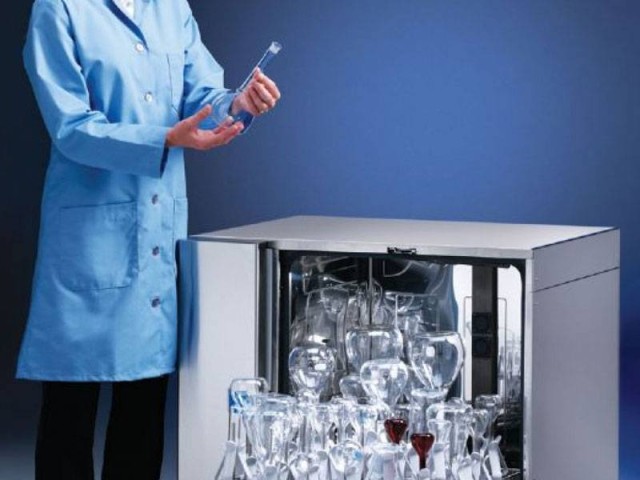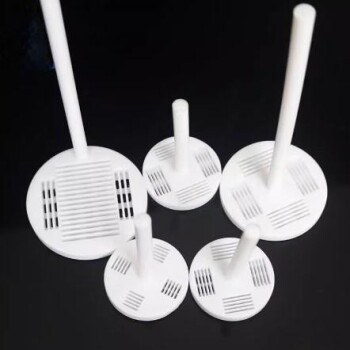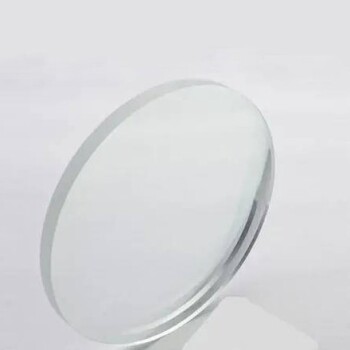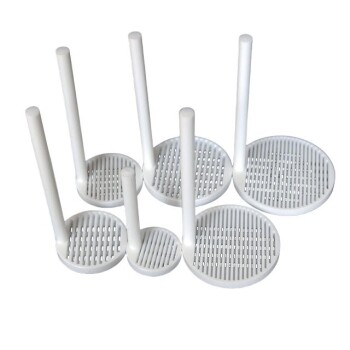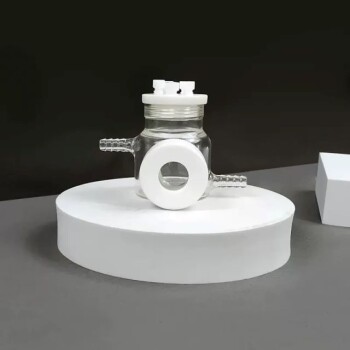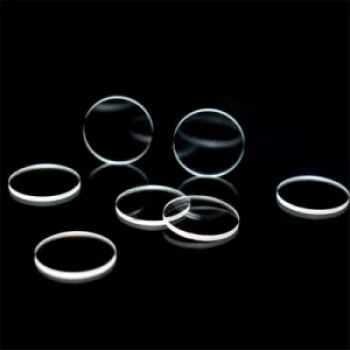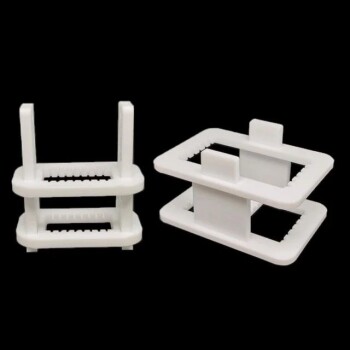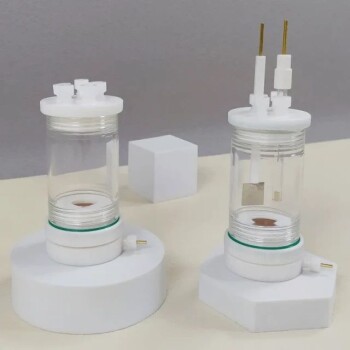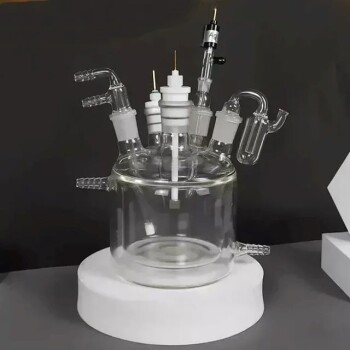Washing Special Glassware
Glassware Used for Organic Chemistry: Rinse the glassware with the appropriate solvent. Use deionized water for water-soluble contents. Use ethanol for ethanol-soluble contents, followed by rinses in deionized water. Rinse with other solvents as needed, followed by ethanol and finally deionized water. If the glassware requires scrubbing, scrub with a brush using hot soapy water, rinse thoroughly with tap water, followed by rinses with deionized water.
Burets: Wash with hot soapy water, rinse thoroughly with tap water, then rinse 3-4 times with deionized water. Be sure the final rinses sheet off of the glass. Burets need to be thoroughly clean to be used for quantitative lab work.
Pipets and Volumetric Flasks: In some cases, you may need to soak the glassware overnight in soapy water. Clean pipets and volumetric flasks using warm soapy water. The glassware may require scrubbing with a brush. Rinse with tap water followed by 3-4 rinses with deionized water.
Drying or Not Drying Glassware
Not Drying: It is inadvisable to dry glassware with a paper towel or forced air since this can introduce fibers or impurities that can contaminate the solution. Normally you can allow glassware to air dry on the shelf. Otherwise, if you are adding water to the glassware, it is fine to leave it wet (unless it will affect the concentration of the final solution). If the solvent will be ether, you can rinse the glassware with ethanol or acetone to remove the water, then rinse with the final solution to remove the alcohol or acetone.
Rinsing with Reagent: If water will affect the concentration of the final solution, triple rinse the glassware with the solution.
Drying Glassware: If glassware is to be used immediately after washing and must be dry, rinse it 2-3 times with acetone. This will remove any water and will evaporate quickly. While it's not a great idea to blow air into glassware to dry it, sometimes you can apply a vacuum to evaporate the solvent.
Additional Notes
Remove stoppers and stopcocks when they are not in use. Otherwise they may 'freeze' in place.
You can degrease ground glass joints by wiping them with a lint-free towel soaked with ether or acetone. Wear gloves and avoid breathing the fumes.
The deionized water rinse should form a smooth sheet when poured through clean glassware. If this sheeting action is not seen, more aggressive cleaning methods may be needed.
Related Products
- Custom Machined and Molded PTFE Teflon Parts Manufacturer for Laboratory ITO FTO Conductive Glass Cleaning Flower Basket
- Optical Ultra-Clear Glass Sheet for Laboratory K9 B270 BK7
- Custom PTFE Teflon Parts Manufacturer for Cleaning Racks
- Evaporation Crucible for Organic Matter
- Optical Water Bath Electrolytic Electrochemical Cell
